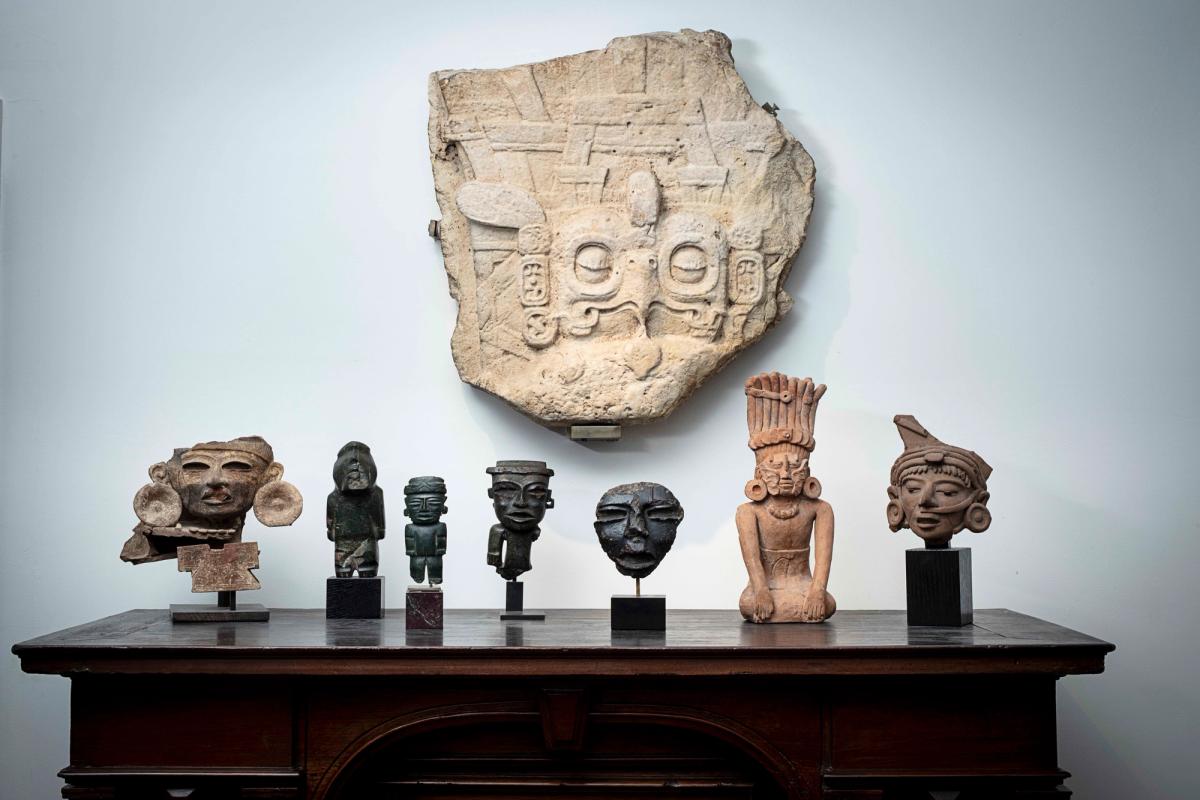Central American countries are up in arms once more over the sale of pre-hispanic objects in Paris, which they say is “encouraging looting and trafficking of their cultural heritage". Their anger was triggered by an auction of pre-Columbian artefacts owned by the French collectors Manichak and Jean Aurance held at Alexandre Millon at Drouot yesterday, 18 September.
A week before the sale, Guatemala announced that one of the lots—a Mayan relief of a head of a king wearing a mask in the form of a bird of prey and crowned by the glyph of the metropolis of Teotihuacan—had been withdrawn following a demand for its restitution, submitted on 1 August. The fragment, estimated to sell for around €30,000, had been taken in the early 1960s from a stele at the Mayan site of Piedras Negras and smuggled out of the country, before turning up in Earl Stendhal’s gallery in Los Angeles and later sold to the Aurances.
Guatemala presented historiographic and photographic evidence, compiled since the stele’s discovery in 1899. The archeologist and epigraphist David Stuart, from the University of Texas in Austin, welcomed its withdrawal from the sale and hoped it would be "reunited soon with the other pieces of the monument". Negotiations are underway for an amicable settlement—Millon says that the Aurances could seek an indemnity.
This episode triggered an even stronger reaction from Mexico. The day before the sale, Mexico's ambassador to France, Juan Manuel Gómez Robledo, announced that his country had demanded the sale to be cancelled outright. Of 122 lots, Mexico demands the return of 95 objects, which it claims had been looted. “The historical and anthropological Institute of Mexico also thinks that 24 other works are fakes," Gómez Robledo says, adding that Colombia supported the cancellation request. He says Mexico had alerted Unesco and formally requested France’s cooperation.
But, as no legal action was taken, Alexandre Millon's sale went ahead. Millon says he has been the victim of “opportunistic cultural nationalism", and says the sale is “perfectly legitimate". He adds: "This kind of pressure is counter productive and can only encourage the black market."
The controversy ultimately failed to dampen bidding and the Millon sale doubled its estimate, raising €860,000 for the Aurance collection, with 93% of the lots sold, and a total of €1.2m for the whole sale. An Aztec goddess of running water and the patron of navigation and childbirth went up to €377,000, five times the initial estimate.
Mexico knew its action would remain symbolic. Guatemala says it has launched ten similar demands since 2010, to no effect. Mexico has also regularly intervened, but seldom publicly requested the cancellation of an entire sale.
Mexico is also concerned that Sotheby’s and Christie’s have resumed their pre-Columbian sales in Paris. Mentioning President Emmanuel Macron’s openness to the repatriation of African heritage, Gómez Robledo points out that the Mexican President Andrés Manuel López Obrador considered cultural heritage “a foreign policy priority."


